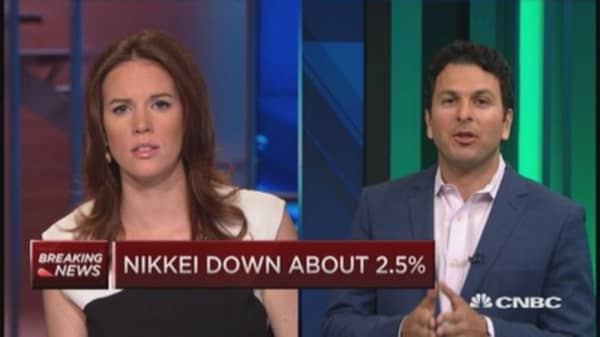It turns out that Merger Monday is alive and well, at least for the deals that really matter. (One news outlet's analysis looked at thousands of smaller deals, not the kind of thing that would make front page news. And another outlet's analysis said that half the deals happened on days other than Monday. That's the same thing as saying Monday has as many deals as every other day combined.)
We looked at announcements of U.S. M&A deals valued at more than $1 billion since 1995. So far in 2015, 33 percent of deals were announced on a Monday, down from 2014's 37 percent, but on par with recent years.
For a sample, look at Warren Buffett's recent Monday announcement of Berkshire Hathaway's purchase of Precision Castparts for $235 a share. Not only was that 21 percent above the previous day's closing, but it was one of the biggest deals Buffett has made as head of Berkshire and the sixth-largest U.S. M&A deal this year.
The deal demonstrated the Oracle of Omaha's faith in the aerospace sector and lends credence to the idea that Merger Monday is still around. After all, the deal had been in talks for weeks before the announcement, Buffett told CNBC's "Squawk Box" recently.
There is one good statistical reason for why Monday is the most common day for M&A announcements: Banking pros don't take a day off.
Neil Dhar, partner in the deals practice at professional services firm PwC, said he's noticed the Merger Monday phenomenon and he thinks it is a simple matter of Wall Street's 24/7 hum of activity.
"I think a lot of those things are attributable to people working through the weekend," he said. It makes sense: If accountants and interns spend their Saturdays working on deals, then of course they'll come out on Monday morning. As a result, many M&A reports have now shifted their schedules from a Monday-Friday workweek to one that runs Sunday-Thursday, allowing them to be ready to jump on deal announcements when all other slackers get to work on Monday.








